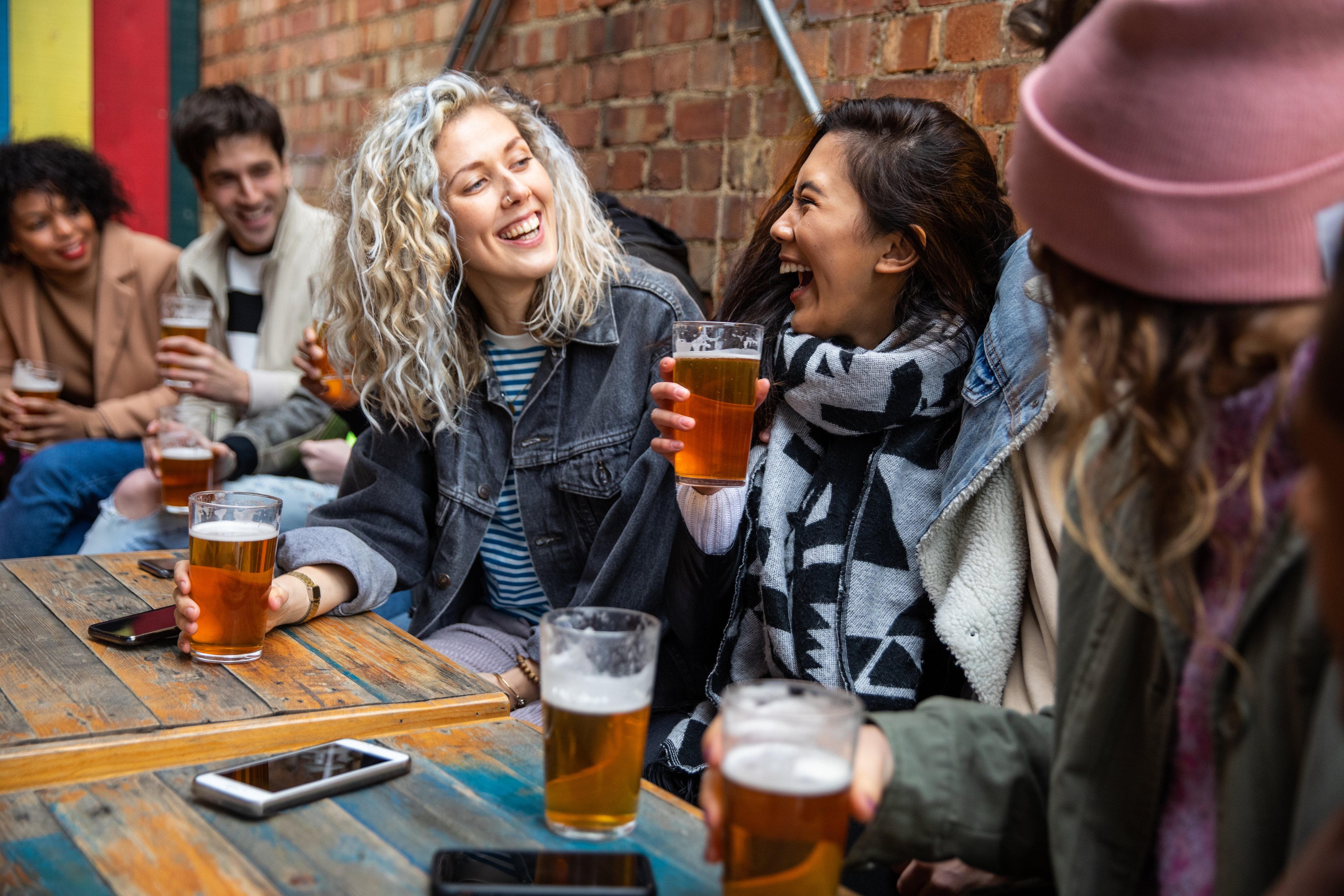The coronavirus pandemic revealed a major weakness in the business model of Diageo (DEO +0.81%), namely that its operations are too tied to restaurants, bars, and clubs. Because of the shutdown caused by the pandemic, 20% of Diageo's North American business was put at risk, as was 50% of its European business.
Although package-good stores remained open during the crisis, analysts believe alcoholic beverages like Diageo's leading Johnnie Walker scotch and other spirits are more apt to be drunk by consumers when they're out on the town rather than at home. As a result, they see brewers being a better investment.

Image source: Getty Images.
Yet it's not the beer that analysts favor. It's the other beverages the brewers produce, such as hard tea and cider, but mostly hard seltzer, which has won over consumers' palates and shows no signs of letting up.
Although Diageo has over 200 brands in its portfolio across the full spectrum of spirits, and even has a sizable beer business under its Guinness brand, it doesn't have an effervescent drop of hard seltzer to its name, and that may be the most glaring omission for the distiller.
The beverage that bubbles to the top
Even during the pandemic, hard seltzer sales are soaring. According to Nielsen data, each week since March 21, the U.S. off-premise market saw dollar sales of hard seltzer exceed those for the week of July 4, 2019, the previous high-water mark for weekly sales.
And sales continue to achieve new heights: Market researchers say the week ending June 13 represented the fourth consecutive week that hard seltzer was the driving force behind more than $100 million in retail off-premise dollar sales. Nielsen says it was also the 10th consecutive week during which annual retail hard seltzer dollar sales increased by at least $50 million.
Where Nielsen previously expected hard seltzer to account for 10% of the beer category's sales by the end of the summer, it now anticipates the beverage will represent 15%.
Two companies continue to dominate the market, White Claw hard seltzer from industry leader Mark Anthony Brands and Truly from Boston Beer. Together they have a 75% market share.
There are literally dozens of brands now clamoring to meet insatiable consumer demand. Where there had been just 10 hard seltzer brands on the market at the beginning of 2018, that jumped to 26 by the start of 2019, and more than 65 brands to kick off this year.
While you'll find the biggest brewers in the space, including Anheuser-Busch InBev, Molson Coors Brewing, and Constellation Brands, all pushing their own hard seltzer concoctions, you'll be hard pressed to find a major distiller doing the same.
It's hard to distill the reasons for the industry's avoidance
Not only does Diageo not participate in the hard seltzer market, but neither does Brown-Forman (BF.A +0.40%)(BF.B +0.41%), which produces the top-selling Jack Daniel's Tennessee Whiskey. While it has branched out into various flavored offshoots of the brand, including ready-to-drink beverages, it has no hard seltzer.
Japan's Beam Suntory, which makes Jim Beam whiskey, along with vodka, gin, rum, and other spirits, has also neglected the market, though it may come closest with a beverage called chu-hi, a fruit-flavored carbonated water drink, but it's only available in certain Asian markets.
Diageo generates 25% of its sales from scotch, 16% from beer, and another 11% from vodka. It says drinkers are moving away from beer and wine and toward spirits, which represent 53% of the global alcohol market by volume, up from 48% 10 years ago. But Diageo and other distillers are making a serious miscalculation by avoiding hard seltzer.
Now is the time to get in
Even as restaurants, bars, and clubs begin to reopen, investors shouldn't expect Diageo to bounce back quickly. Some states are delaying reopening or clamping down again. And even where these businesses are operational, they're having to enforce capacity limits that will stunt meaningful sales growth.
Because hard seltzer has also been gaining significant real estate in the on-premises market (Nielsen found those hard seltzer volumes sales surged 500% between 2018 and 2019) it's likely that its potential will be better than that of spirits when bars and restaurants reopen.
On-premise, off-premise, online, and all year round, hard seltzer has moved beyond being a seasonal drink. Diageo is making a mistake by not developing a hard seltzer, whether it's branded as Johnnie Walker or something else.








